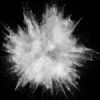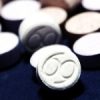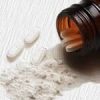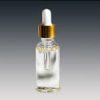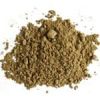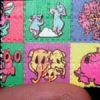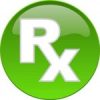Information on Clonazepam
Clonazepam at a Glance
It is commonly known by its brand name Klonopin, a tranquillizer of the benzodiazepine class. It is a medication used to prevent and treat seizures, it is also prescribed for anxiety and panic disorders. It works by lessening electrical activity in the brain.
This drug is not recommended for long-term use due to adverse side effects and a high potential for tolerance (needing a higher dose to get the initial effect) and addiction.
It is taken orally. It begins having an effect within an hour and lasts between six and 12 hours.
Common Brand Name(s): Klonopin, Rivotril
Information on Clonazepam Common side effects
- drowsiness
- dizziness
- weakness
- unsteadiness
- depression
- loss of orientation
- Headaches
- sleep disturbances
- problems with thinking or memory
- slurred speech
- dry mouth
- sore gums
- runny nose
- loss of appetite
- diarrhea
- constipation
- blurred vision
Alcohol, barbiturates, and narcotics will interact with this drug. If used with certain medications, it can increase the risk of serious or life-threatening breathing problems, sedation, or coma.
Clonazepam use during pregnancy may cause adverse effects in the fetus. Breastfeeding while taking Klonopin is not recommended.
Less Common Side Effects
- blurred vision,
- confusion,
- irritability,
- loss of libido,
- lack of motivation,
- psychomotor agitation,
- hallucination,
- worsening of depression,
- short-term memory loss,
- and anterograde amnesia, (can’t form new memories after the certain event) especially with high doses
Information on Clonazepam withdrawal
- Headaches
- Stomach pain
- Nausea
- Tremors
- Sweating
- Hallucinations
- Dizziness
- Fatigue
- Confusion
- Anxiety
- Depression
- Seizures
- Thoughts of suicide
The first stage of withdrawal symptoms peaks two weeks after the drug is stopped, but subtle signs can last anywhere from a week to a month.
Stopping the use of this drug without medical supervision is not recommended due to its dangerous side effects. Withdrawal symptoms may occur even in people not abusing the drug.
Klonopin Overdose
Overdosing on clonazepam alone is rarely fatal. Abusing this medication along with other drugs such as alcohol or painkillers can produce dangerous interactions that can lead to serious harm or death.
Signs and symptoms of an overdose may include:
- Drowsiness
- Confusion
- Impaired coordination
- Slow reflexes
- Slowed or stopped breathing
- Coma (loss of consciousness)
- Death
Clonazepam, like other benzodiazepines, slows the body’s systems, so people who overdose may stop breathing. It is important to maintain breathing to ensure minimum damage or death. Call 911 for assistance.
Source: medlineplus.gov/
List of Drugs
REVIEWS

Marc J. Bernard
Author,
Substance Use Disorder & Recovery Professional,
Referral & Consultation Counsellor


